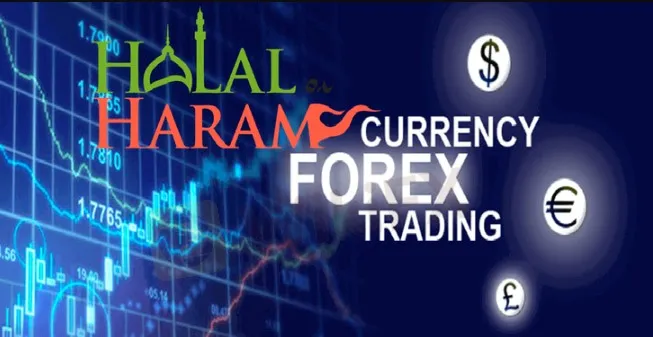简体中文
繁體中文
English
Pусский
日本語
ภาษาไทย
Tiếng Việt
Bahasa Indonesia
Español
हिन्दी
Filippiiniläinen
Français
Deutsch
Português
Türkçe
한국어
العربية
What Is an Islamic Forex Account?
Abstract:Trading has traditionally been considered haram in Islam, though it is not as black and white as that. The primary principle in the regulation of the Islamic trading process is to avoid any harmful activities, primarily investment interests, as well as to restrict high-risk transactions, which prohibit margin and derivatives trading.
Click Here: After you read it, Daily Routine with WikiFx Visit Avatrade website
If you leave positions open overnight, your broker will automatically roll them over and charge you a “rollover fee”. The Islamic Account, on the other hand, does not have swap charges. This page will explain what Islamic account Forex trading is, how it connects to Islamic finance, and provide a list of firms who offer Islamic Account trading.
Islamic Finance
Trading is considered haram in Islam, although it is not as simple as that. The Islamic trading procedure regulation prohibits high-risk transactions such as margin and derivatives trading.
Islamic finance comprises four pillars:
-No interest rate payments or receipts (Riba)
-Instant exchanges in trading activities
-Gambling ban
-Risk and reward distribution

Islamic Bans:
Trading accounts cannot incur or get rollover swap points on positions that stay open after 5 p.m. EST on New York.
Interest on margin deposits is prohibited by Sharia law.
Loans: Transferring money to a consumer as a loan with interest terms is banned since it involves Riba. Signed obligations to repay loans are likewise forbidden.
Margin trading involves paying interest (Riba) to a broker to acquire or sell stocks, which is also against Sharia law. Trading forex, on the other hand, only requires a margin deposit, with no interest paid.
Short sales: Borrowing and then selling an asset for profit is illegal. But not with forex transactions.
Forward sales are prohibited by Sharia. This would restrict you from trading forward contracts or futures.
Traditional online Forex trading is prohibited due to the nature of Forex trading, which requires a certain level of risk to make a successful trade.
Islamic Account
An Islamic Forex account is a halal trading account offered to individuals who follow the Quran and seek to trade in the Islamic stock market. These accounts are designed to adhere to Islamic beliefs and hence differ from conventional accounts in various ways.
An Islamic account is a conventional Forex account without interest charges. This type of account is known as a swap-free account' because it pays no interest.
While there aren't as many Islamic brokers as traditional brokers, they are growing. While not all brokers offer Islamic accounts,' many do offer a basic account that is tailored to your needs and compliant with Sharia law.
Cons of Islamic Trading Accounts
No swap commissions are the key distinction between Islamic and basic accounts. This is a big advantage because you may open long positions without worrying about swap commissions lowering your profits. The trader can also open trades in currency pairs with hefty swap charges (especially in exotic pairs).
Trading swap-free seems nice, but having an Islamic account has its drawbacks. The reason is that the minimum deposit is large and the leverage is minimal. As in Islamic finance, the non-swap broker will charge a predetermined administrative fee to stay profitable after eliminating interest.
Disclaimer:
The views in this article only represent the author's personal views, and do not constitute investment advice on this platform. This platform does not guarantee the accuracy, completeness and timeliness of the information in the article, and will not be liable for any loss caused by the use of or reliance on the information in the article.
Read more

Participate Now in ForexCup Trading Championship
FXOpen announced the trading competition called ForexCup Trading Championship 2025 for traders. You can join, trade, and compete for exciting prizes. Here are the details

What the Movie Margin Call Taught Traders About Risk and Timing
The 2011 film Margin Call offers a gripping portrayal of the early hours of the 2008 financial crisis, set within a Wall Street investment firm. While the film is a fictionalised account, its lessons resonate strongly with traders and finance professionals. For one trader, watching the film had a lasting impact, shaping how they approached risk, decision-making, and the harsh realities of the financial world.

Why More Traders Are Turning to Proprietary Firms for Success
Over the past decade, one particular avenue has gained significant popularity: proprietary trading, or prop trading. As more traders seek to maximize their earning potential while managing risk, many are turning to proprietary firms for the resources, capital, and opportunities they offer. In this article, we’ll explore why an increasing number of traders are choosing proprietary trading firms as their preferred platform for success.

Day Trading Guide: Key Considerations
How does day trading balance freedom and precision in fast-moving markets? Learn key strategies to navigate risks and seize intraday opportunities effectively.
WikiFX Broker
Latest News
Fake ‘cyber fraud online complaint’ website Exposed!
Day Trading Guide: Key Considerations
NAGA Launches CryptoX: Zero Fees, 24/7 Crypto Trading
Scam Alert: 7 Brokers You Need to Avoid
AvaTrade Launches Advanced Automated Trading Tools AvaSocial and DupliTrade
What Determines Currency Prices?
Why More Traders Are Turning to Proprietary Firms for Success
How to Use an Economic Calendar in Forex Trading
MC Markets Review 2025
T4Trade Enhances Forex Trading with Advanced Tools for 2025
Currency Calculator






